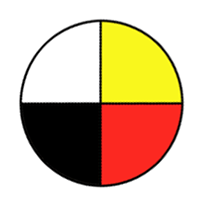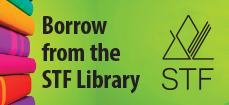Appraise the importance of establishing/maintaining healthy relationships with people from diverse backgrounds who may or may not express differing values, beliefs, standards, and/or perspectives (i.e., people of various ages, cultures, socio-economic status, faiths, family structures, sexual orientations, and cognitive/physical abilities).
| (a) |
Conclude the importance of respecting facts, evidence, and views of others when engaging in discussions. |
| (b) |
Ask compelling questions to initiate insights as to how people are the same, how people are different, and how individuals are unique. |
| (c) |
Shape new thoughts about oneself as an individual who has a unique heritage and particular influences on beliefs, standards, and/or perspectives. |
| (d) |
Identify sources of, and evaluate information about, diversity. |
| (e) |
Articulate a comprehensive understanding of prejudice, stereotype, and bias. |
| (f) |
Discuss and question stereotypes and biases that exist in the school and community. |
| (g) |
Explore stereotypes and beliefs (including but not limited to those related to age, culture, religion, family structures, and sexual orientations), both past and present, that might limit the number and kinds of healthy relationships. |
| (h) |
Investigate (including through drama, dance, music, and/or visual art) what the community would be like if everyone was exactly the same. |
| (i) |
Examine the characteristics of healthy relationships. |
| (j) |
Propose how the community would be different if stereotypes and biases did not exist. |
| (k) |
Explore and articulate an understanding of socio-economic class, gender, and culture as attributes of identity that are ascribed to groups of people and the ways that preconceptions about people based on these designations can be false, limiting, and harmful. |









What's Respect? Respecting Rules - Why are there rules? What does it mean to respect rules? The program helps students to understand the importance of following rules and their impact on society.
What's Respect? Self Respect - In this program, students learn what it means to have self-respect. They will come to understand the importance of knowing what their values are and how they differ from others.
What's Respect? Respecting Everyone's Ideas - This program explores the concept of respecting the differences in people. In this segment, students learn the importance of respecting different ideas.
What's Respect? We're All Different - Students will learn each person is different and it is important to respect these differences.

Cliques? It Feels Good to Belong - Finding their place in a particular social group is a primary concern of many children. Cliques are groups of friends, but not all groups of friends are cliques. Cliques may be formed in elementary school or in middle school. Sometimes cliques are made of kids who share a common interest and other times the kids in them want to be popular or want to belong.
Cliques? Good or Bad - Cliques can have both positive and negative effects on individuals and groups, too. This program explores how cliques can affect a student and an entire school.
Cliques? Excluding Others - This program shows that cliques leave some kids out on purpose and kids may act much differently than they did before they were part of the clique.
Cliques? One or More is Okay - Some students have diverse interests. In this segment, kids will come to understand that it's okay to have two different sets of friends to hang out with.
The pertinent scenarios in this program should be appealing to both male and female students. The discussion questions that are provided are thought-provoking and should foster good discussions.












This document will assist individuals and communities to engage in meaningful discussions and actions to respond to the experiences, perspectives and needs of students and families who are gender and/or sexually diverse (GSD).
Content includes:
- Gender and Sexual Diversity
- First Nations and Métis Ways of Knowing
- Assumptions, Privilege and Oppression
- Comprehensive School Community Health (CSCH)
- CSCH Approach to Creating Inclusive Schools









